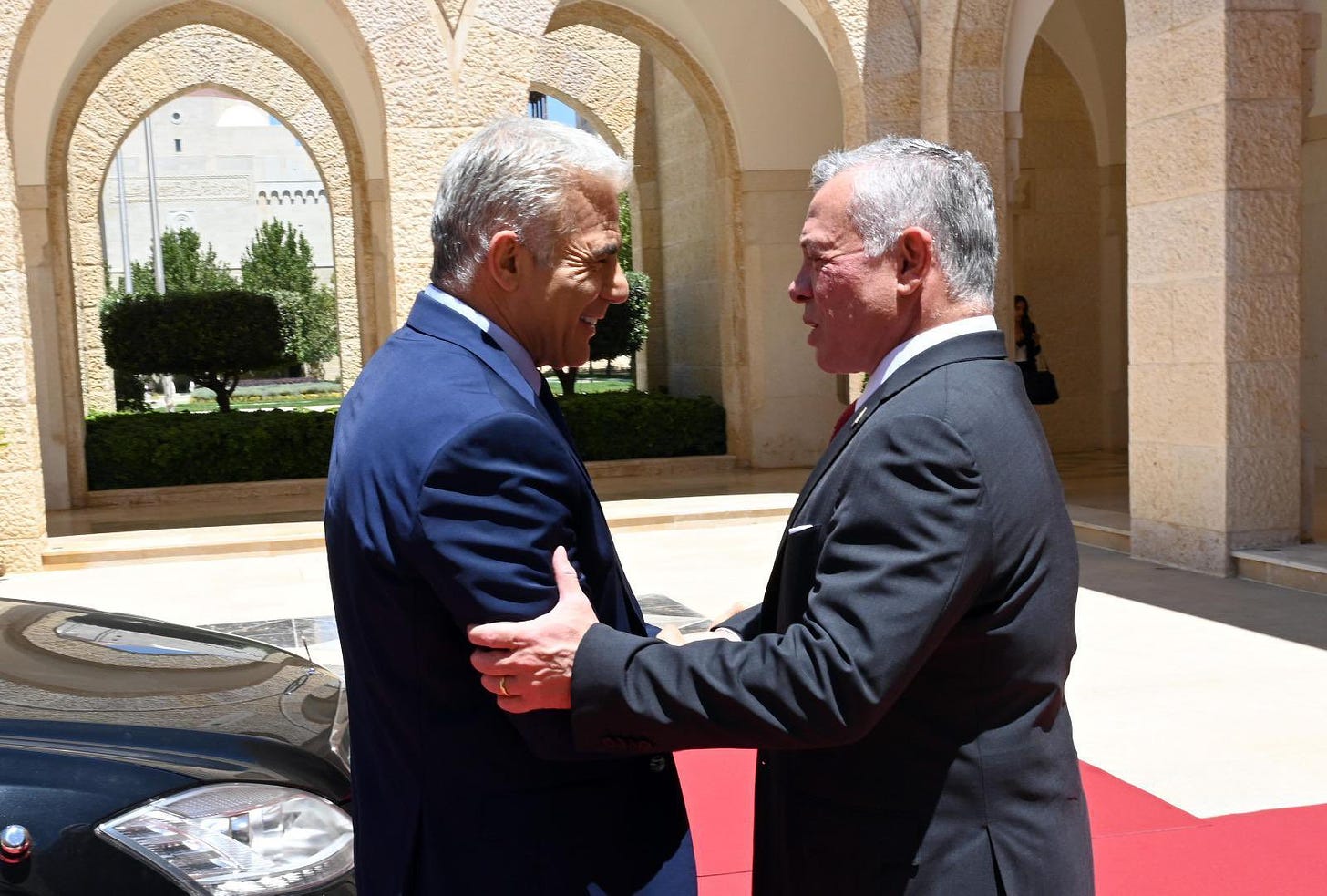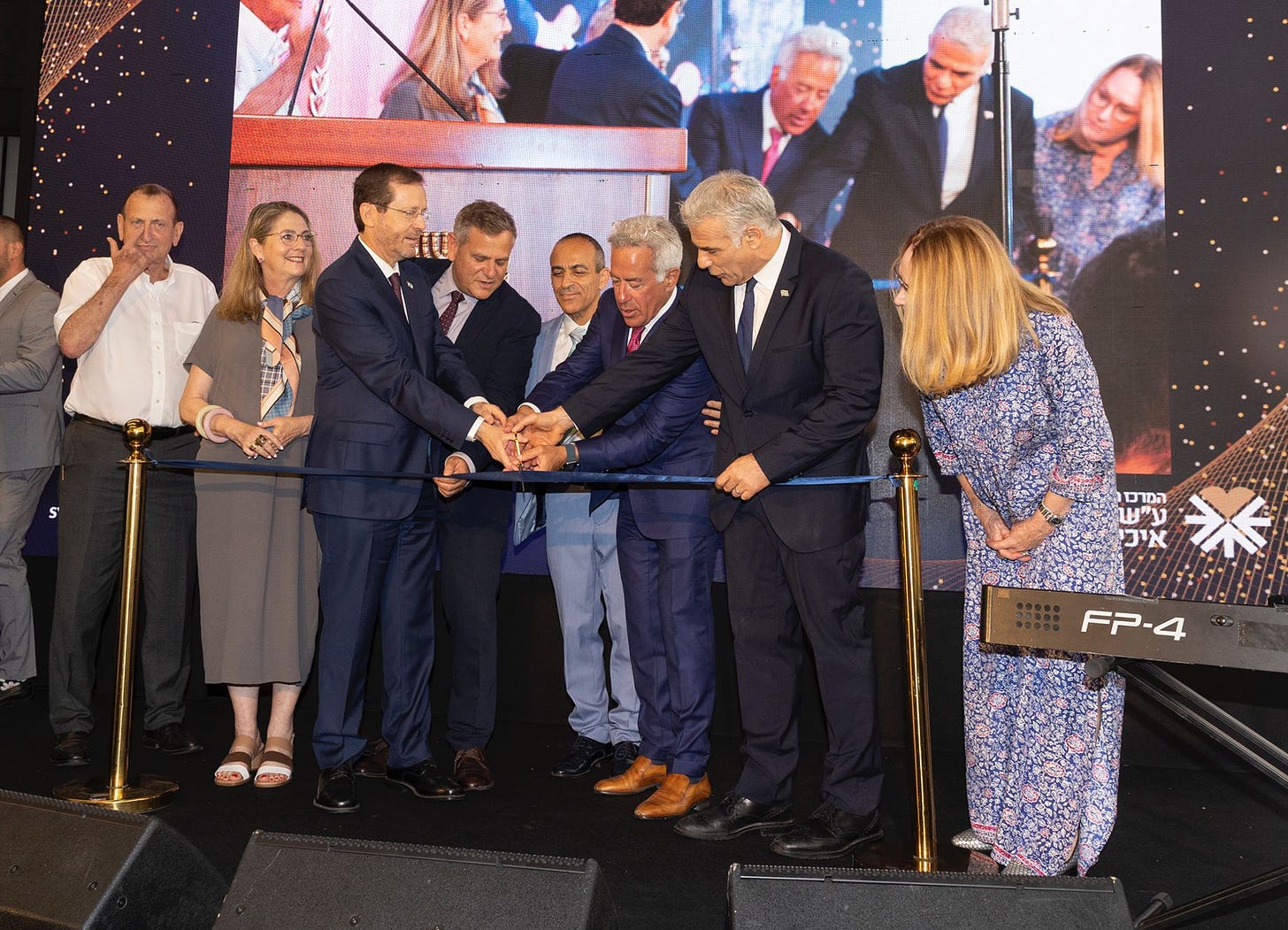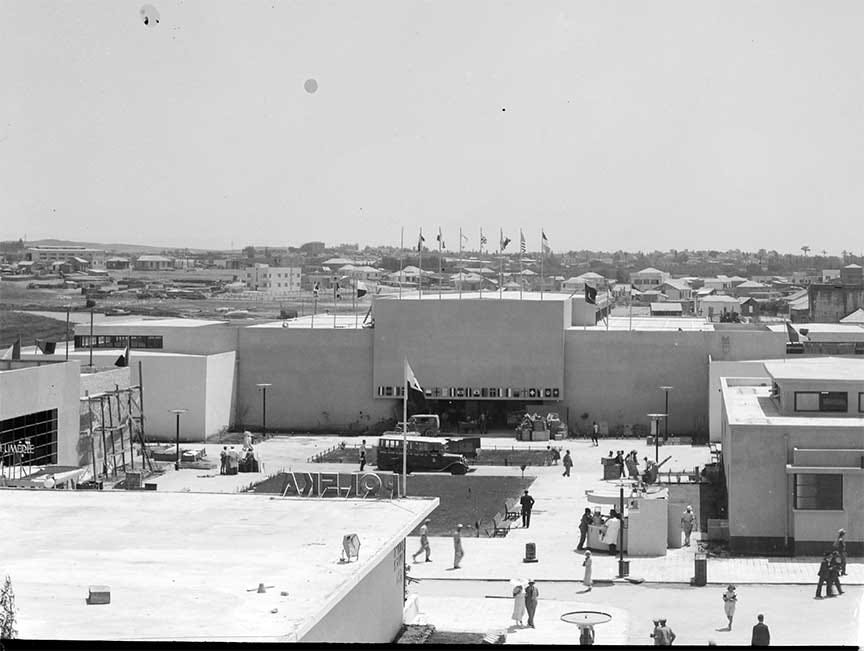Tel Aviv Diary July 29, 2022
Defense, Politics,Tel Aviv News, Restaurants, Film Review, and little history
Welcome to the first installment of “Tel Aviv Diary” …
In 2006, I initiated the “Israel Update” section on my HistoryCentral website, which I continued to update a few times each week. Amidst the 2014 Gaza War, Newsweek approached me with an offer to become my major media partner. I accepted, and over the course of that war, my reports on Tel Aviv under bombardment led the site most days. After the war, my editor conceived the idea of a “Tel Aviv Diary,” which, as he put it at a Senior Editors’ meeting, would give readers a view from inside Tel Aviv.
I composed postings of the “Tel Aviv Diary” for a number of years. However, more recently, my role at Newsweek has transformed into more of an opinion columnist. While I had started this SubStack as a revival of my Israel Update, I began to receive feedback with requests for the writing to be a little more personal. For this reason, I decided to rejuvenate the “Tel Aviv Diary,” — i.e. a view of Israel from Tel Aviv — this time, including several expanded sections (e.g., a bit of history, restaurant and various other reviews, along with whatever else might be interesting in the city I love). Guest contributions on any subjects relevant to Tel Aviv are welcome!
So, here we begin:
NATIONAL DEFENSE & DIPLOMACY
US National Security Council Middle East Coordinator, Brett McGurk, stated what has been apparent for the last few weeks — that there is little chance of Iran consenting to return to the JCPOA agreement. Moreover, with war raging in Ukraine, there is equally little chance the US will take significant action. Although Defense Minister Benny Gantz claims Israel has the military capability of significantly delaying the Iranian nuclear program, former Prime Minister Ehud Barak wrote a piece this week arguing that it is too late to accomplish anything significant with regard to Iran.
Prime Minister Yair Lapid traveled to Amman to meet with King Hussein. This was the first public meeting between Hussein and a sitting Israeli Prime Minister in ten years
.
Hezbollah’s threats to attack Israel’s Karish gas field are being taken very seriously by the IDF, which has increased readiness in the area.
HOMELAND SECURITY
This week, State Ombudsman Matanyahu Englman issued a report on the police response to rioting in the mixed cities during the Gaza War last year. The report was a devastating indictment of the police. It underscored the fact there were not nearly enough police in the mixed cities — for instance, only 25 in the town of Lod. Furthermore, the Ombudsman reported that over 20% of the calls to the police went unanswered, and just as many of the answered calls still received no response. Englman noted that Netanyahu was Prime Minister and Ohana served as Minister of Internal Security, at the time.
Last week, former Prime Minister Netanyahu gave testimony to the commission investigating the tragedy at Mt. Meron where 45 people were crushed and killed in a stampede last year. When asked why nothing was done to try to prevent this tragedy, Netanyahu responded that he unaware there was any real danger, and he could not be expected to know if government decisions were actually implemented. Following Netanyahu’s testimony, it has been hard to believe there are still people who deeply believe he is better suited to be Prime Minister than anyone else.
TEL AVIV’S NEWEST HOSPITAL WING
Tel Aviv’s Ichilov Hospital dedicated its new emergency room — the world’s largest. The 86,000 square-foot facility has been designed to routinely accommodate 100 patients, with a surge capacity of 200. The new facility includes special provisions for psychiatric patients and those suffering sexual trauma. This state-of-the-art emergency department was built thanks to a $28 million donation made by Canadian-born Israeli, Sylvan Adams. The cutting-edge clinic is equipped with the latest high-tech innovations — where patients can check themselves in, while automated systems gather their initial health status, after which, robots guide patients to the appropriate locations.
.
POLITICS
In a bid to pass the minimum required threshold for seats in the Knesset, Yoaz Hendel and Tzvi Hauser have merged their small party with what is left of Yemina, namely Minister of Interior Ayelet Shaked. Hendel, one of the most effective ministers in the last government, in his role as Communications Minister, and Shaked, one of Israel’s brightest politicians, have come together to form a non-religious right-wing list. Are there enough voters who do not want to vote for Likud, but believe Gantz is too left for them? It’s not at all clear there is a constituency for their party.
Zahava Galon decided to return to politics, in response to cries from some of her longtime supporters, after both Nitzan Hurwitz and Tamar Zandberg announced they would step away from Meretz leadership. Galon is competing against former IDF Deputy Chief of Staff Yair Golan. Her slogan is as short-sighted as the rallying cry promoted by Meretz during the past elections — “I am back; Meretz is back” — the only problem with this declaration is that once Galon was no longer leading the party, Meretz became part of the government coalition for the first time in a generation. Sadly, I fear Galon should have stayed retired. First and foremost, I sincerely hope Galon does not bring back the old, empty (in my opinion) Meretz campaign slogan — “Meretz, The True Left.” Yair Golan promised me if he won, he would not recycle that whimpering call to arms.
The Labor Party already held the primary for its leader, and, to the surprise of no one, Meirav Michaeli won. Her opponent was the current Labor Party Director General, but nevertheless, a virtual unknown. This was the first time in the history of the Labor Party primaries that a leader has been elected twice in a row.
Netflix recently released a two-hour documentary on the life of Israeli President Shimon Peres. This film is exceptionally well done, and wraps the story of Peres’ life around the history of the State of Israel. “Never stop dreaming” is narrated by George Clooney, and includes interviews with US Presidents Clinton, Bush, and Obama, all of whom worked with Peres. Peres’ brilliance comes through in the film, as do his creativity, as well as dedication to both Israel and his dreams. Some of the less stellar moments in Peres’ career are skipped, such as his early support for the settlements, and some underhanded political maneuvers. Still, as Peres’ granddaughter states, it’s clear that later in his career, Peres was motivated solely by the good of the State. I still remember when Peres spoke to a group I brought to Israel, at a gym in Holon. He extemporaneously delivered a one-hour lecture on the impact of the fall of the Soviet Union; an analysis that was much more insightful than what I heard as graduate student at Columbia University from the so-called experts. The film is highly educational and very moving. Some scenes brought me close to tears. Watch it!
BUSINESS
Teva reached an agreement with all those suing the company over their role in the Opioid crisis. The settlement was for a total of $4.25 billion; a sum which includes all of the partial agreements reached until now. The payments will be made over ten years, with $3 billion dollars in cash, and the balance dedicated to provide drugs, such as Narcan. Teva’s stock rose 24% on the heels of the settlement news. Despite the exceptionally high penalty, the reaching of a final judgement brings certainty to Teva’s total liability.
Israeli-founded cybersecurity firm PerimeterX announced its plans to merge with Human Security of New York. The deal, made up almost exclusively of stock, will create a combined company with an estimated $1.5 billion value.
News from the high-tech sector during the last few weeks has not been good. Thousands of workers have been let go, especially from start-ups that grew too quickly. There is some concern that the cooling of the high-tech sector worldwide could strongly affect the Israeli economy.
However, one thing that will limit the potential negative impact is the large number of multinationals doing R&D in Israel, who are unlikely to cut back their R&D, even in these more challenging economic times. An excellent example of continued multinational corporation support here is the news that Apple plans to open its third development center in Israel, this time in Jerusalem. Today, Apple employs over 2,000 people at its centers in Herzliya and Haifa … if only the company would open an Apple Store in Tel Aviv!
RESTAURANT REVIEW — by Tali Schulman
Merloza HaCarmel
Found on one of the alleys leaving the main drag of Shuk HaCarmel (The Carmel Market), Merloza HaCarmel puts a unique spin on the classic Mediterranean/Middle Eastern dishes typically found in Tel Aviv. Don't let the small, unassuming space wedged between the primary market and the meat aisle fool you — this is a spot not to be missed! Merloza’s menu focuses on the wide variety of fresh fish found locally, served in more ways than one could possibly expect (pickled, raw, fillet, fried, and so much more). Some of my favorite dishes that should not be skipped include the fish Arais (traditionally made with ground beef), and the fried drumfish (mosar) wings, accompanied by the most delicious green aioli — but truthfully, you cannot go wrong with a single dish on the menu. Make sure to book yourself a visit/table there next time you're in town!
For more Tel Aviv restaurant recommendations, you can find me on Instagram @talischulman where I save all my food adventures in my highlights!
A PIECE OF HISTORY
The Levant Fair
The Levant Fair started as a small, international trade fair held in a Tel Aviv school to promote products made in Palestine. Additional such trade fairs were held in 1923, 1925, 1926, 1929, and 1932 each more extensive and successful than the previous one. The 1932 fair was the first to be called “The Levant Fair” and attracted 300,00 visitors. Thanks to the fair’s success, a decision was made to build permanent fairgrounds, constructed at the very end of Dizengoff Street, near the newly built port. In 1934 the Levant Fair opened at its new home. The leading architects in Palestine designed different pavilions, with the most important structure being the “made-in-Palestine” pavilion designed by architect Richard Kauffmann crafted in the shape of a ship. An astounding 600,000 people from 30 countries attended the fair, which put Tel Aviv on the international map.







